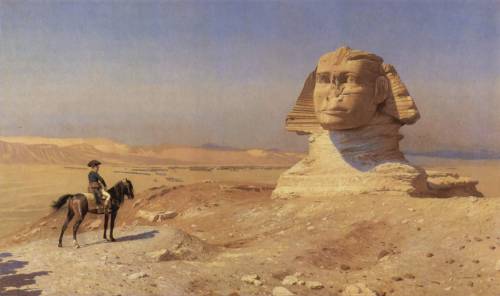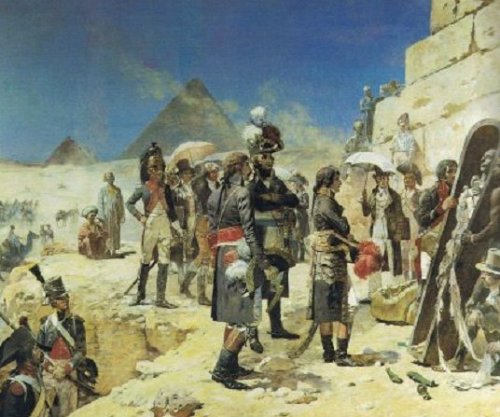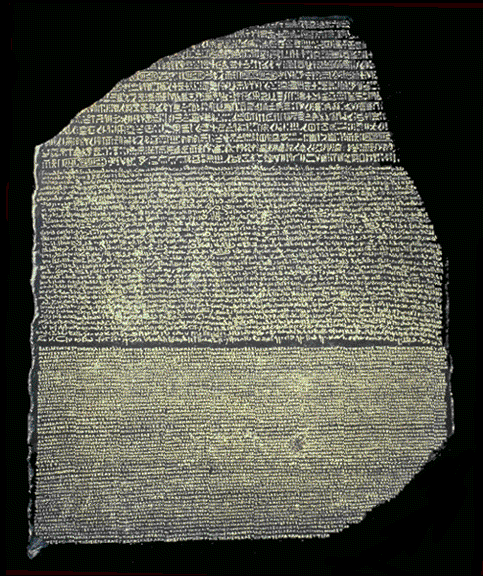Napoleon in Egypt Part II — Pharaoh BonaparteIf you missed Part I, click hereThe young French
Napoleon in Egypt Part II — Pharaoh BonaparteIf you missed Part I, click hereThe young French general Napoleon Bonaparte had succeeded in conquering Egypt, a mysterious and exotic land that had been the crown jewel of ancient empires. However Napoleon’s victory turned sour when a British fleet under the command of Horatio Nelson destroyed his support fleet anchored off the Nile Delta. Without his fleet Napoleon and his army was effectively stranded in Egypt, and it did not look like France would be able to mount a rescue expedition any time soon.While certainly a bitter situation, Napoleon decided to make the best of it. Foreshadowing his future roles as First Consul and later Emperor, Napoleon declared himself the ruler of Egypt, basically setting himself up as a new Egyptian pharaoh. Casting himself as the liberator of Egypt, Napoleon sought to modernize the ancient nation. Working with local leaders, especially the Muslim leader Muhammed Ali of Egypt, he enacted many political and social reforms in Egypt. As a result of these projects many hospitals, libraries, a chemical laboratory, botanical garden, health service, menagerie, and an observatory were built. Napoleon also sought to standardize and update Egyptian currency, economics, and weights and measures. Plans were also drawn up to construct a canal through the Suez region (Suez Canal) and restore many ancient Egyptian monuments such as the Sphinx, however none of these projects came to fruition.Of all Napoleon’s achievements in Egypt, perhaps the most important were scientific in nature rather than military or political. Among the expedition were a number of naturalists, botanists, chemists, engineers, mathematicians, and historians. It was Bonaparte’s goal to study and increase the scientific and historical knowledge of Egypt, a country which Europeans had almost no knowledge of at the time. Scientists collected specimens of local wildlife, conducted archaeological digs, measured ancient monuments, studied the climate, and did surveys of Egypt’s topography. Perhaps the expedition’s greatest successes were in the field of archaeology. In fact Napoleon’s expedition would provide the basis for modern Egyptology and gave rise to fascination with Egypt throughout Europe and America. Historians investigated sites all over the country, excavating over 5,000 artifacts between 1798 and 1801. Most would be seized by the British when the country was retaken in 1801, and can now be found in the British museum. Among the artifacts was a stone tablet called the Rosetta Stone (pictured above). The Rosetta Stone was important because it had a decree from King Ptolemy V which was written in hieroglyphics, Greek, and Demotic. Discovered by French engineering officer Pierre-François Bouchard, the multi-lingual stone provided a key for linguists and historians to decipher and translate ancient Egyptian. Before the Rosetta Stone, no one could read ancient Egyptian hieroglyphics and thus most of ancient Egypt’s written record was completely unknown. Today it is hailed as one of the most important discoveries in Egyptian Archaeology, providing a firm foundation for Egyptology and leading to two centuries of discovery afterwards. Despite the many successes of Napoleon’s expedition, the situation in Egypt was growing worse. Many Egyptians were resentful of Napoleon and the French, seeing them not as liberators but as infidels and conquerors. Rebellion was brewing among the people, and Napoleon’s position in Egypt was growing tenuous.To be continued… -- source link
Tumblr Blog : peashooter85.tumblr.com
#history#napoleon#napoleon bonaparte#napoleonic wars#historians#archeology#egyptology#rosetta stone#egypt



